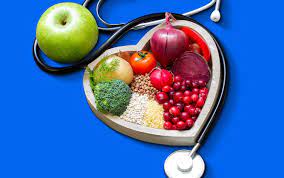
Heart disease is the leading cause of death globally, yet many people still believe in outdated or incorrect information. Misinformation can lead to delayed diagnoses, poor lifestyle choices, and preventable health risks.
In this article, we’ll explore some of the most widespread myths about heart disease — and what experts actually say about them.
Myth #1: “Heart disease only affects older people.”
✅ The Truth: Heart disease can start at any age.
While it’s more common in older adults, the risk factors for heart disease — like high blood pressure, obesity, smoking, and poor diet — can develop in your 20s or 30s. In fact, early lifestyle habits often determine your long-term heart health.
Even young people can suffer from conditions like:
- Arrhythmias (irregular heartbeat)
- Hypertension (high blood pressure)
- Heart inflammation (myocarditis)
- Early heart attacks
Myth #2: “If I don’t have chest pain, my heart is fine.”
✅ The Truth: Not all heart issues cause chest pain.
Many people assume that chest pain is the only warning sign of heart problems. But heart disease can present with many subtle or silent symptoms, such as:
- Shortness of breath
- Fatigue
- Dizziness
- Nausea
- Swollen legs
In fact, women often experience heart disease differently than men and may not feel classic chest discomfort during a heart attack.
Myth #3: “Heart disease runs in my family, so I can’t avoid it.”
✅ The Truth: Genetics matter, but lifestyle matters more.
Having a family history of heart disease does increase your risk, but it doesn’t seal your fate. According to the American Heart Association, adopting healthy habits can reduce genetic risk by more than 50%.
Actions that make a big difference:
- Eating a heart-healthy diet
- Exercising regularly
- Avoiding tobacco and excess alcohol
- Managing stress
- Regular checkups and screenings
Myth #4: “Heart disease only affects men.”
✅ The Truth: Heart disease is the #1 killer of women too.
Historically, research and public awareness campaigns focused more on men. But studies now show that women are equally — if not more — at risk, especially after menopause.
Women may also experience different symptoms, including:
- Jaw, neck, or back pain
- Shortness of breath
- Lightheadedness
- Nausea
- Anxiety
This myth leads many women to ignore warning signs, increasing the risk of fatal outcomes.
Myth #5: “If I’m thin, I won’t get heart disease.”
✅ The Truth: Thin people can still be at risk.
Being slim doesn’t guarantee a healthy heart. Even people with a normal weight can have:
- High cholesterol
- High blood pressure
- Sedentary lifestyle
- Unhealthy eating habits
The key indicators of heart disease risk include blood pressure, blood sugar, cholesterol levels, and lifestyle — not just weight.
Myth #6: “I take medication, so I don’t need to change my lifestyle.”
✅ The Truth: Medication is only part of the solution.
Medications like statins or beta-blockers can help manage heart disease, but they are not a cure-all. Doctors consistently stress the importance of complementing medicine with lifestyle changes for long-term success.
Healthy habits enhance the effectiveness of medication and may even reduce the need for higher doses.
Myth #7: “All fats are bad for the heart.”
✅ The Truth: Some fats are essential for heart health.
Not all fats are created equal. Trans fats and excess saturated fats are harmful, but unsaturated fats — found in foods like:
- Avocados
- Nuts
- Olive oil
- Fatty fish
— actually protect your heart by reducing bad cholesterol and inflammation.
Myth #8: “I would know if I had high blood pressure or cholesterol.”
✅ The Truth: These conditions are often silent.
High blood pressure and high cholesterol are called “silent killers” for a reason. They usually don’t cause symptoms until major damage has been done.
The only way to know your levels is through routine checkups and lab tests. Early detection = early protection.
Myth #9: “Heart disease can’t be reversed.”
✅ The Truth: In some cases, it can be slowed or even reversed.
While not all heart conditions are curable, many can be reversed or stabilized with aggressive lifestyle interventions. This includes:
- Switching to a whole-food plant-based diet
- Daily exercise
- Weight loss
- Stress reduction
- Stopping smoking
Cardiologists often cite clinical studies showing plaque regression with strict changes in diet and behavior.
Myth #10: “Heart disease always requires surgery.”
✅ The Truth: Many cases are managed without surgery.
Not all heart disease leads to bypass surgery or stents. In fact, most cases are treated with medications, lifestyle changes, and regular monitoring.
Surgical intervention is typically reserved for severe blockages, valve issues, or emergencies. Early action can prevent the need for such measures.
Conclusion
Misinformation about heart disease is widespread — but dangerous. Believing these myths can delay care, worsen outcomes, and give a false sense of security.
What you believe can affect how you behave — and how you care for your heart. That’s why it’s important to rely on facts backed by cardiologists and clinical research.
Staying informed, proactive, and health-conscious is the best way to keep your heart strong for years to come.
FAQs About Heart Disease Myths
1. Can stress alone cause heart disease?
Chronic stress can contribute to high blood pressure and inflammation, increasing heart disease risk. It’s not the sole cause, but it plays a big role.
2. Are natural supplements a good replacement for heart medications?
No. Some supplements may support heart health, but they should not replace prescribed medications without your doctor’s approval.
3. Can I stop heart disease once it starts?
While it may not be entirely curable, heart disease progression can be slowed — and in some cases, partially reversed — through lifestyle and medical treatment.
4. Do women need different treatment for heart disease?
Women may experience different symptoms and may respond slightly differently to treatments, so personalized care is essential.
5. Is exercise dangerous for someone with heart disease?
No — in fact, moderate, supervised exercise is highly beneficial. Always consult a doctor before starting a new fitness routine.






